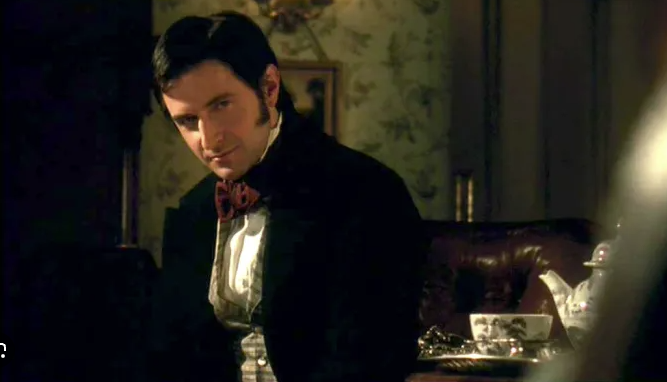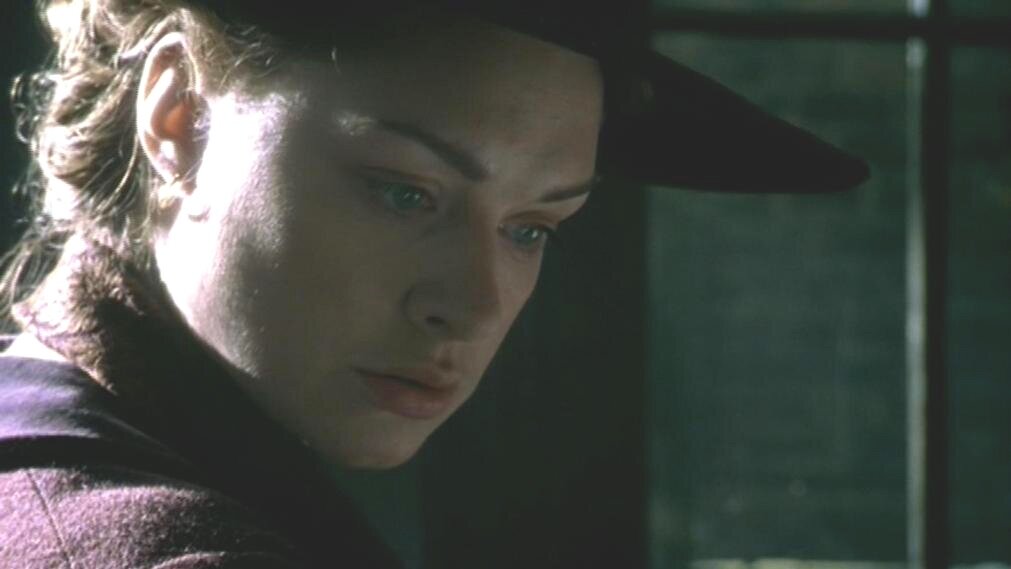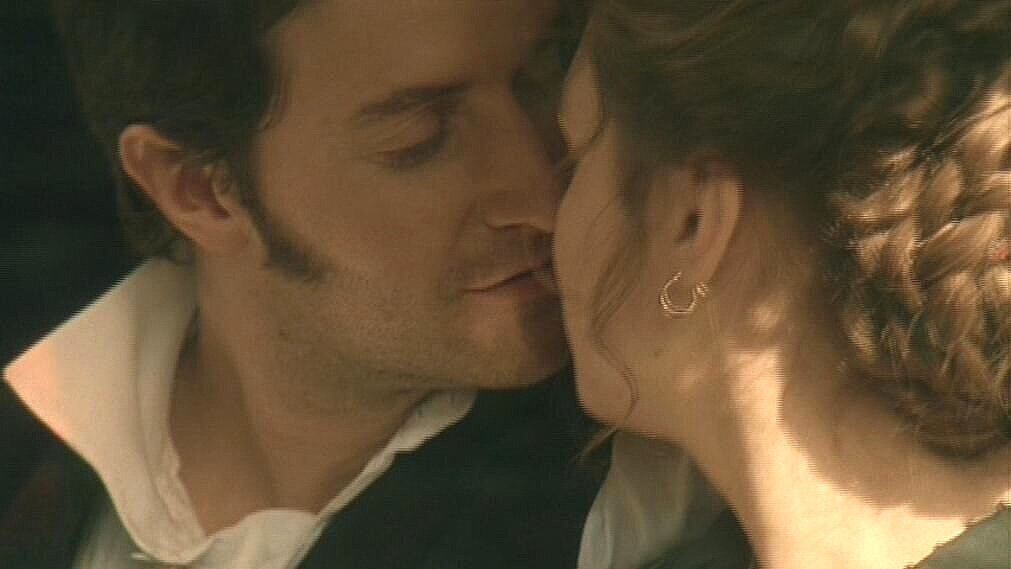There’s something so powerfully magical in the brief scene where Margaret is waiting to see Mr. Thornton in his office. It’s the vantage point of the repeat viewer that makes it so. We know what Margaret doesn’t—that the most significant encounter of her life is about to happen. These are the few quiet moments before she bursts into John Thornton’s world.
Margaret studies the mill yard scene. (From the BBC’s production of North and South.)
Brought by the overseer to wait for the Master, Margaret is impatient to resolve the details of renting the house in Crampton. She needs to get back to her father, so she can’t wait around forever. But she takes some time to take in the scene around her. She can’t help being curious about the factory setting of the town her family is moving to.
I always hold my breath when she stops to look closer at the writing in the open ledger. I tell myself that she is examining the handwriting of the man who will become her husband. It never fails to send my romantic heart all aflutter to imagine how intimately her life will be intwined with the man who wrote those very figures and words.
It’s almost as if she’s drawn to look and doesn’t know why—as if the power of his presence pervades the room and speaks to her from the pages. And all the while we know that she has no idea of the significance of the impending moment.
Am I the only one who feels the suspense building in this scene? I adore it. It’s a brilliant device by the screenplay writer. Margaret’s contemplative solitude is a silent contrast to the cacophony and activity of the machinery and factory workers she finds behind the sliding door.
The scene where Margaret opens the door to a world of falling cotton “snow” is as impactful as the famous film moment when Dorothy opens the door of the fallen drab Kansas farmhouse to discover a whole new world of brilliant color.
Nothing has prepared Margaret for the sights and sounds before her.
What makes the “waiting” scene so compelling is that it feels so commonplace to us. We’ve all been in similar situations—kept waiting. It’s a regular part of life to wait. We have moments of being held stationary while we long to push forward with our outlined agenda.
And sometimes—just sometimes—something happens to change the course of our lives. And we may not even recognize it at first.
Not everyone will have an encounter as spectacularly surprising as Margaret Hale when she first meets her husband-to-be. But we can have moments of uexpected discoveries and encounters that lead to new paths we hadn’t foreseen.
During this time of collective waiting, I hope we’re all headed for some pleasant surprises and unexpected encounters that lead to higher satisfaction, joy, and good for all humanity.
























